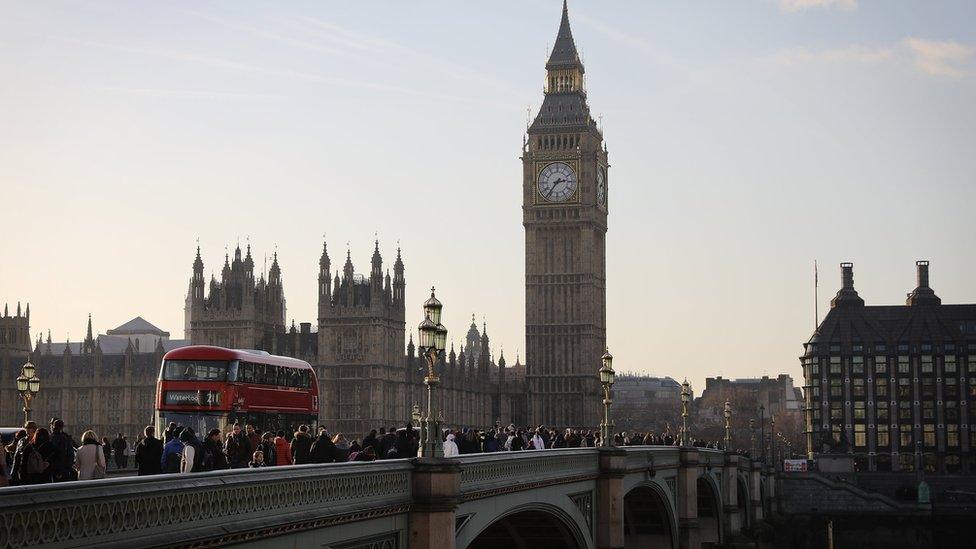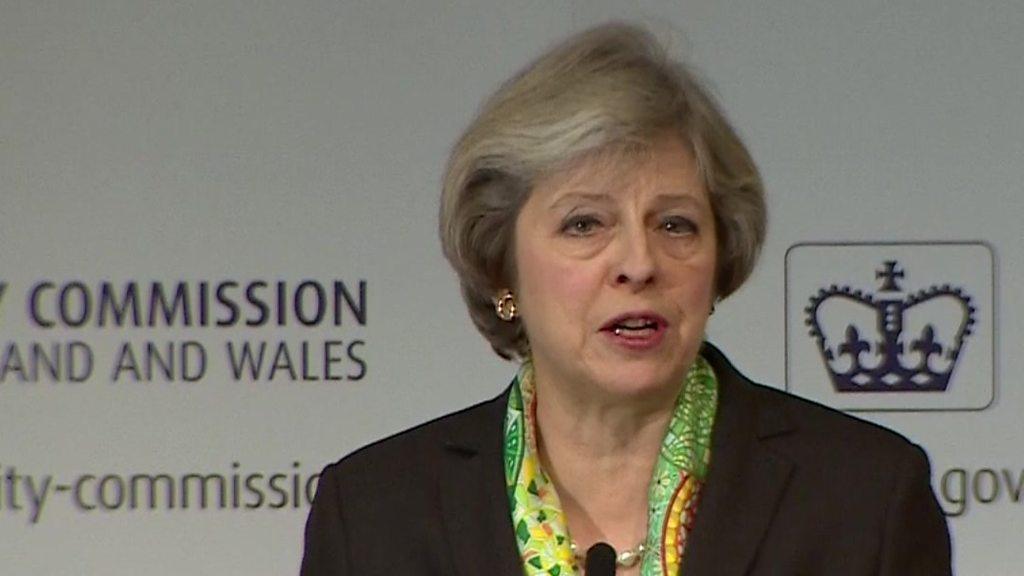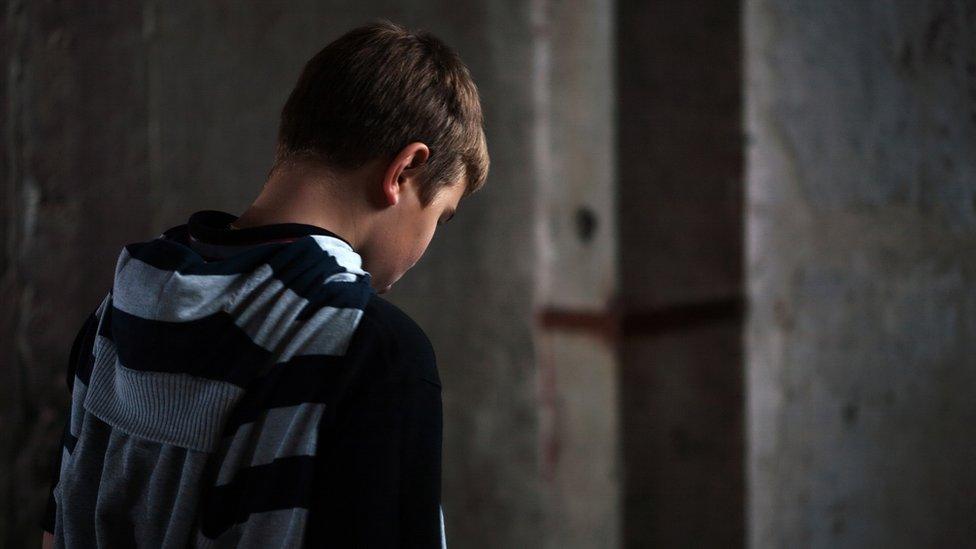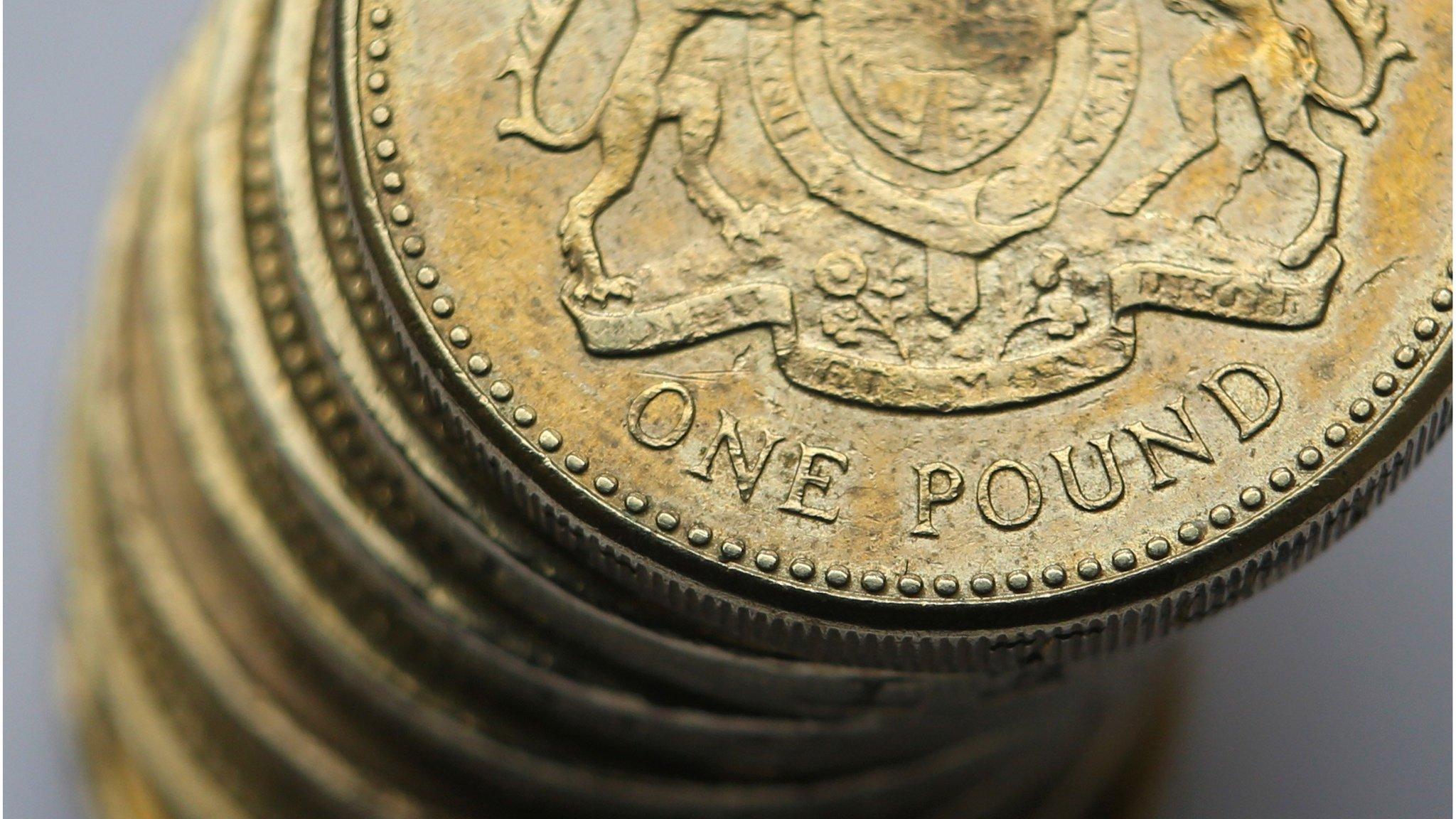Theresa May: Brexit can 'change Britain for the better'
- Published
Centre-ground politicians 'must show they can respond to people's concerns'
Theresa May has criticised those who believe a so-called "hard Brexit" is inevitable after the UK leaves the EU.
The prime minister said she wanted the UK to "operate within" the single market as part of a new relationship.
Speaking in London, she vowed to build a "shared society" in which wealth and opportunity were not the preserve of an elite, and injustices were tackled.
She said that Brexit provided an "opportunity to fundamentally change Britain for the better".
Outlining her social reform agenda in her most significant policy speech for three months, Mrs May announced steps to improve mental health provision in the UK and transform attitudes to people suffering from mental health conditions.
She announced extra training for teachers, more online self-checking for those with concerns and a review of services for children and teenagers.
This approach, she said, was part of her wider belief in a "shared society" where the state intervenes to correct social and economic injustices.
Speaking to reporters afterwards, she was pressed on market reaction to comments she made on Sunday when she suggested the UK could not be expected to "keep bits" of its existing EU membership. The pound fell to a two-month low against major currencies on Monday, losing about 1% of its value.

Analysis by Laura Kuenssberg, BBC political editor
After a while, every political leader finds themselves in need of a slogan, and it's certainly not the worst that's ever been dreamed up.
Theresa May wants you to see her and her party as the sensible middle, on the side of ordinary families, not veering away from the centre ground.
It's about as clear an appeal to Middle England, where elections are traditionally won, as you can find. But while she gave today the skeleton of a philosophy, there was not a fully fleshed-out body of policy to accompany it.

She dismissed claims her comments signalled a preference for a "hard Brexit" - where the UK would face potential restrictions on trade access and tariffs on exports and imports - to the alternative "soft Brexit" scenario where the UK remained in the single market but would not have full control over migration.
"I'm tempted to say that the people who are getting it wrong are those who print things saying 'I'm talking about a hard Brexit, (that) it is absolutely inevitable there's a hard Brexit'," she said.
"I don't accept the terms hard and soft Brexit. What we're doing is going to get an ambitious, good and best possible deal for the United Kingdom in terms of... trading with and operating within the single European market."
German Chancellor Angela Merkel later reiterated that access to the single market would be "limited" unless the UK accepted the continued free movement of people from the EU. In response, Downing Street insisted that discussions over immigration and trade were not a "zero-sum game".
Expanding on her domestic priorities, Mrs May pledged to help those on low and modest incomes who felt bypassed and threatened by globalisation, a group of people who were "just about managing" and whose interests had often been neglected by governments over the past 20 years.
'Stepping up'
In what will be seen as break from her predecessor David Cameron, she said she backed a "strong and strategic" state which could intervene effectively to tackle deep-seated social problems such as educational underachievement and health disparities among certain groups.
"The central tenet of my belief - the thing that shapes my approach - is that there is more to life than individualism and self-interest," she said.
"This means a government rooted not in the laissez-faire liberalism that leaves people to get by on their own, but rather in a new philosophy that means government stepping up.
"Not just in the traditional way of providing a welfare state to support the most vulnerable, as vital as that will always be. But actually in going further to help those who have been ignored by government for too long because they don't fall into the income bracket that makes them qualify for welfare support."

Theresa May pointed to events including the Parliamentary expenses scandal
She said the 2008 banking crash, the 2009 MPs' expenses scandal and the 2011 newspaper phone hacking revelations had led people to question the "legitimacy" of institutions and conclude there "is one rule for the rich and powerful and another for everyone else".
If parties such as the Conservatives did not address such concerns, as well as fears over growing levels of inequality and uncontrolled immigration, she warned that groups on the "fringes" of the political spectrum would benefit.
"We know what happens when mainstream, centre-ground politics fails," she said. "People embrace the fringe - the politics of division and despair. They turn to those who offer easy answers - who claim to understand people's problems and always know what - and who - to blame.
"We see those fringe voices gaining prominence in some countries across Europe today - voices from the hard-left and the far-right stepping forward and sensing that this is their time."
"But they stand on the shoulders of mainstream politicians who have allowed unfairness and division to grow by ignoring the legitimate concerns of ordinary people for too long."
Labour's shadow minister Andrew Gywnne said it would "take more than a speech and a slogan for Theresa May to convince people that she wants to tackle division in society". Under the Conservatives, he said, "those at the top have been given tax breaks while everyone else suffers".
Lib Dem leader Tim Farron said Mrs May's "pitch to the centre ground" would not work because "her words are not matched by her actions".
- Published9 January 2017

- Published9 January 2017

- Published9 January 2017
